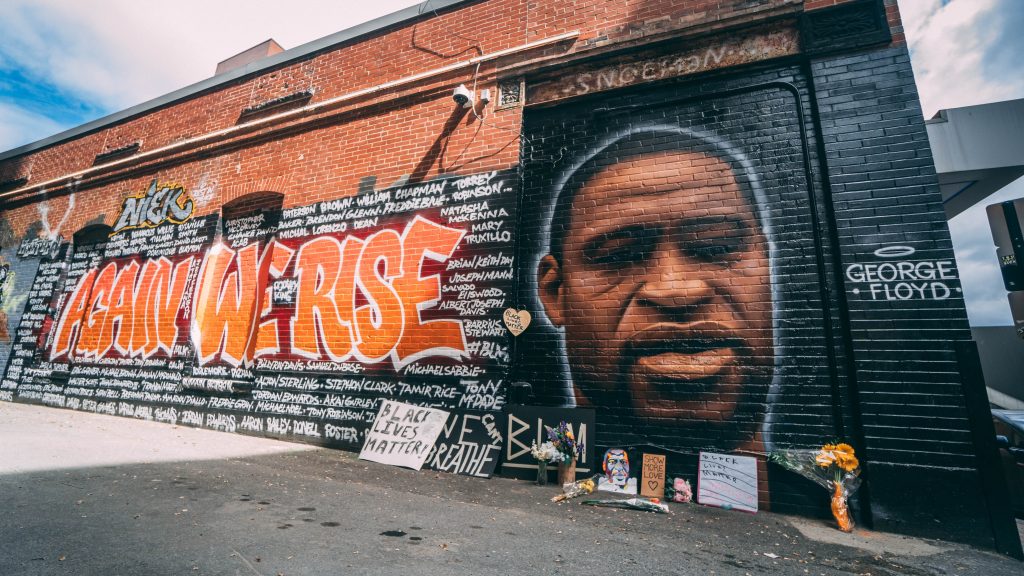Some Companies Have Done Better Than Others Keeping Racial Justice Pledges
Organizations have the resources to honor diversity and equity promises, but structural and cultural problems, as well as a lack of accountability, are hindering their ability to follow through, says economist William Michael Cunningham.

Last year, after the murder of George Floyd, 251 American companies vowed to combat systemic racism within their own organizations. In aggregate, these companies pledged $65 billion to bolster their diversity and equity initiatives. One year later, economist William Michael Cunningham says only $500 million has been allocated toward these efforts.
“We know American corporations can move if they want to … there’s a lot of expertise in communities of color that could help these companies make these changes … the impetus for making these kinds of rapid changes has definitely declined.” –William Michael Cunningham, Creative Investment Research
Cunningham explains that American companies have the resources to honor these pledges, but he says structural and cultural problems, as well as a lack of accountability, are hindering their ability to follow through on their promises.
Listen: Economist William Michael Cunningham on the impact of racial justice pledges.
Guests
William Michael Cunningham is an economist and founder of Creative Investment Research in Washington, D.C.
“We know American corporations can move if they want to,” he says. “There’s a lot of expertise in communities of color that could help these companies make these changes … the impetus for making these kinds of rapid changes has definitely declined.”
Six companies account for 70% of corporate pledges, Cunningham notes. “That is a reflection of the increase in the concentration of wealth, income and assets from a corporate perspective,” he says, explaining that when it comes to promoting racial equity, it comes down to a few big players. “There are fewer and fewer companies that can make these big commitments.”
Cunningham says that corporate pledges are not typically enforced with legal requirements. When a corporate entity does not follow through on their promise, Cunningham says, “there’s limited ways that you could hold them accountable for that lack of performance.” To address these issues of accountability, he says, “We would like to see some kind of trust created that holds all of these corporate IOUs … that basically has the ability to ping these corporations and ask them about the specifics concerning their activities in this area.”
“So many times, we find that in some corporations it’s a silo initiative… [diversity, equity and inclusion need] to permeate throughout the entire organization and it has to be tied to strategic business objectives.” –Marlin Williams, Fortune 500 diversity, equity and inclusion officer
Marlin Williams is a two-time Fortune 500 diversity, equity and inclusion (DEI) officer and former deputy chief information officer for the City of Detroit. She is the co-author, along with Marlo Rencher, of “Hard Reset: Framing Diversity, Equity, and Inclusion as the New Normal.” The book focuses on the pair’s real-life experiences in DEI and explores the metrics of this field. “Sometimes the conversations around DEI can be daunting … this book eases people into the topic, but it is hard-hitting and based around fact,” Williams says.
Regarding the recent focus on DEI, Williams says, “So many times, we find that in some corporations it’s a silo initiative … DEI needs to permeate throughout the entire organization and it has to be tied to strategic business objectives.”
Marlo Rencher is an entrepreneur, anthropologist and educator with over two decades of experience in startup and small business development. Rencher says, for many companies to make progress toward racial equity, structural upheaval is necessary. “To really get at some of the real problems, we’re talking about re-structuring the organizations and thinking about it in a much more strategic way,” she explains. “I think we’re at a point now of corporations figuring out this takes more than what they originally thought and I am not sure whether or not … people are willing to make a change.”
Web post written by Molly Ryan
Trusted, accurate, up-to-date
WDET is here to keep you informed on essential information, news and resources related to COVID-19.
This is a stressful, insecure time for many. So it’s more important than ever for you, our listeners and readers, who are able to donate to keep supporting WDET’s mission. Please make a gift today.
